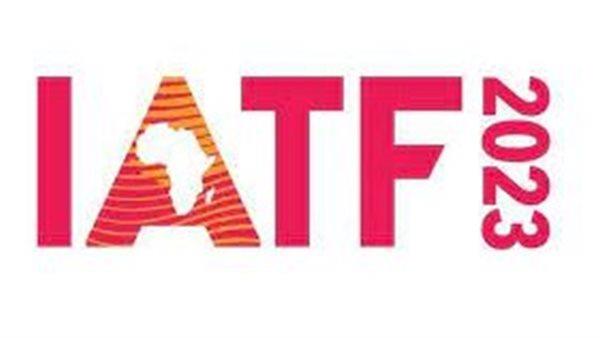
African nations officially launched a landmark trade agreement at the African Union summit in Niger on Sunday, with the long sought-after agreement hailed as a historic step towards "peace and prosperity" across the continent.
After 17 years of tough negotiations, the AU launched the "operational phase" of the African Continental Free Trade Area (AfCFTA) in what AU commission chairman Moussa Faki had described as a "historic" moment.
"An old dream is coming true, the founding fathers must be proud," said Faki, adding that AfCFTA would create "the greatest trading area in the world".
Nigers President Mahamadou Issoufou hailed it as "the greatest historical event for the African continent since the creation of the Organisation of African Unity in 1963," referring to the AUs predecessor.
AU officials announced the launch of the five "operational instruments" of the African Continental Free Trade Area (AfCFTA).
Nations agreed to shared "rules of origin, the monitoring and elimination of non-tariff barriers, a unified digital payments system and an African trade observatory dashboard", the AU commission announced.
The agreement was given a boost when the presidents of Nigeria and Benin signed on to rapturous applause on Sunday morning at the two-day summit in Nigers capital Niamey.
With Nigeria and Benin on board, 54 of the 55 AU member countries have now signed onto the deal, with holdout Eritrea announcing it will consider joining the pact.
Around 4,500 delegates and guests -- including 32 heads of state and more than 100 ministers -- attended the AU summit in Niamey, which has been revamped and boasts a brand-new airport, upgraded roads, and new hotels for the occasion.
- Game changer for Africa -
The agreement was formalized at the end of April when it crossed the launch threshold, which required ratification by at least 22 countries.
The zone will be operational from July 1st 2020, giving countries time to adapt to the agreed changes, Issoufou said.
Malawis director of trade, Christina Chatima, told AFP the trade agreement as a "game changer for Africa."
"Most of us export with Europe and the US. Its about time we started trading more with each other," she said.
However despite the launch, there are still key issues leaders have yet to resolve.
Leaders could not agree on a common criteria for rules of origin for some sectors.
"An agreement has not yet been reached on some of these issues," Chatima said. "On textiles, even the automotive sector. The AU secretariat is meant to come up with proposals on how we can agree," she added.
The AfCFTA commits the majority of countries to 90 percent tariff cuts within a five year period -- reducing barriers to trade on the continent.
Countries on a United Nations list of Least Developed Countries will have 10 years to cut tariffs, whilst a group of six countries -- including Niger and Malawi -- will have at least 15 years, Chatima said.
Amaka Anku, Africa analyst at Eurasia group, described the deal as a positive step but said implementing the AfCFTA was still "a long way from taking off", with concerns on how many of the new regulatory agencies for the trade agreement would be funded.
The AU estimates that the deal will lead to a 60-percent boost in intra-African trade by 2022.
At the moment, African countries trade only about 16 percent of their goods and services among one another, compared to 65 percent with European countries.
- Security on the continent -
Also on the summit agenda is security -- an issue afflicting the Sahel in particular.
Summit host Niger has faced constant attacks by jihadist groups.
Its fellow members in the G5-Sahel security pact -- Chad, Mali, Burkina Faso, and Mauritania -- will seek backing at the AU summit to push for a greater UN security force to address the terror threat.
he countries hope to activate Chapter VII of the UN Charter, a Nigerien security source told AFP. The chapter allows for the UN Security Council to determine a threat to peace and propose measures, including military deployment, to deal with it.
"No prosperity, no integration is possible without peace," said Faki, who stressed the importance of an AU Peace Fund launched in 2018 to finance security activities and called on member states to fulfil their financial promises.
So far, only $116 million has been received for the envisaged $400-million fund.
The leaders are also set to discuss boosting intelligence cooperation and the global migration crisis.












